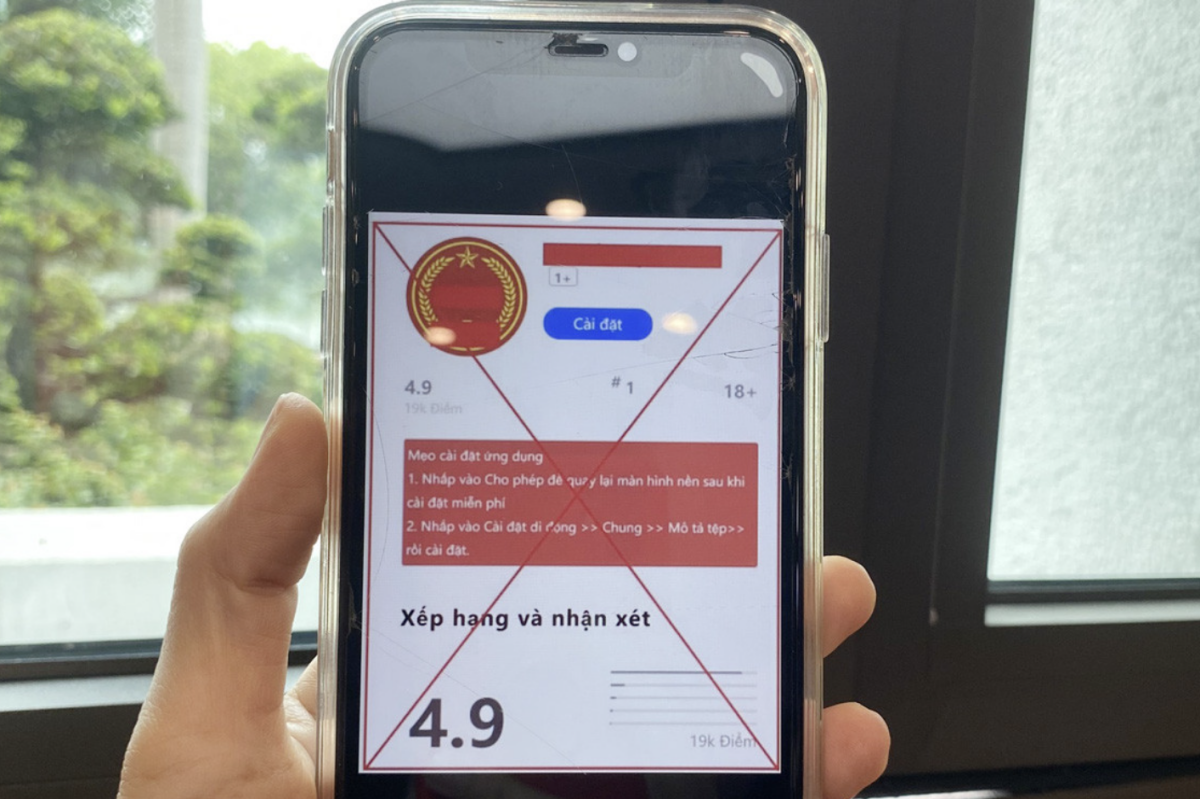
At the workshop "Improving Security and Safety of Cashless Transactions," held on June 14 in Ho Chi Minh City, Mr. Ngo Tuan Anh, General Director of SCS Cyber Security Company, shared two recent cases of individuals being scammed out of 3 billion VND and 1 billion VND, respectively, using very familiar tactics.
In the first case, a husband hid money from his wife to invest in a project supposedly related to Long Thanh airport. Initially, small investments seemed profitable, and he could withdraw money, which excited him. Encouraged, he invested larger sums, including borrowed money, and ultimately lost all his funds, falling into debt.
In the second case, a woman was tricked into downloading and registering for a fake public service software on her phone. The software was actually spyware, which controlled her phone and recorded her banking details. The scammer then stole over 1 billion VND from her account.
According to Mr. Ngo Tuan Anh, such scams persist due to the availability of rented bank accounts and impersonation tactics. Scammers often go to remote areas to borrow identification cards to register accounts, which they then use fraudulently. Additionally, the easy availability of unregistered SIM cards facilitates these scams.
Despite continuous warnings from authorities, many people still fall victim to these well-known scams.
Mr. Vu Ngoc Son, Technology Director at Vietnam National Cyber Security Technology Company (NCS), explained that psychological factors play a significant role. Scammers exploit greed with promises of high profits or prey on anxiety by creating emergency scenarios involving relatives.
The sophistication of scam tactics, often changing and adapting to real events, makes them harder to recognize. The use of new technologies like deepfake further complicates detection.
Additionally, management loopholes such as unregulated phone numbers, leaked personal information, and fake accounts provide scammers with the tools they need.
Preventing fraud
Mr. Vu Ngoc Son advises users to verify the authenticity of information received through independent channels, such as calling known numbers or consulting others before transferring money. Regularly updating knowledge about scam tactics can also help in recognizing and avoiding fraud.
Mr. Ngo Tuan Anh emphasized the need for stricter management of SIM card registration and better protection of personal information. The implementation of Decree 13 on personal data protection, stricter SIM card regulations, and Decision 2345 of the State Bank on biometric authentication for money transfers could significantly reduce fraud.
Journalist Tran Xuan Toan, Deputy Editor-in-Chief of Tuoi Tre Newspaper, highlighted the need for continuous and effective media propaganda to educate the public. Media agencies should create easy-to-understand content to warn and guide people on preventing scams, spreading this information across all media platforms to reach both rural and urban areas.
Le My